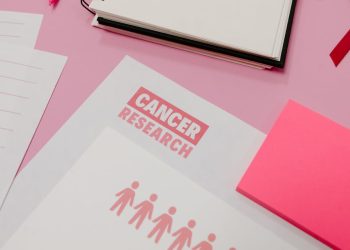No products in the cart.
Unlocking Hidden Career Opportunities in 2025
Explore how to identify and seize overlooked career opportunities in 2025, leveraging trends and data analysis.
Los Angeles, USA — The year 2025 is shaping up to be a transformative period for careers across the globe. As the world continues to recover from the economic disruptions of recent years, new industries are emerging while traditional roles are evolving. However, amidst the noise of this change, there are opportunities that many overlook. How can you become the one who spots them first?
To navigate this landscape, it’s crucial to hone your ability to scan for overlooked industries, roles, or projects. This isn’t just about having a sharp eye; it requires a blend of curiosity, analytical thinking, and a willingness to embrace the unknown. By tapping into trend reports and data analysis, you can uncover paths that others may miss.

According to a recent report by the World Economic Forum, the global labor market is expected to undergo significant shifts in the coming years, particularly in fields related to technology, sustainability, and healthcare [1]. For instance, the rise of green technology is creating a demand for roles in renewable energy sectors that were virtually nonexistent a decade ago. The challenge lies not only in recognizing these trends but also in preparing yourself to seize the opportunities they present.
Take the example of a 27-year-old entrepreneur from Austin, Texas. Emily Chen launched a startup focused on upcycling materials into fashion accessories. She spotted a gap in the market while working part-time in retail, observing how many items were discarded or left unsold. By leveraging social media and sustainable practices, she found a niche that resonated with environmentally conscious consumers. Her story is a testament to the power of keen observation and creative thinking.
She spotted a gap in the market while working part-time in retail, observing how many items were discarded or left unsold.
However, not every opportunity is as clear-cut as Emily’s. In some cases, the most promising roles exist in industries that are still in their infancy. Consider the burgeoning field of virtual reality (VR) therapy. As mental health awareness grows, so does the demand for innovative treatment methods. VR therapy is being explored as a viable option for conditions like PTSD and anxiety disorders. Professionals who can bridge the gap between psychology and technology are likely to find themselves at the forefront of this emerging field.
This highlights a critical skill for the future: adaptability. The ability to pivot and learn new skills will be paramount as industries evolve. Educational institutions are beginning to recognize this need, with many universities now offering interdisciplinary programs that combine technology with traditional fields like healthcare and education. For job seekers, this means seeking out educational opportunities that allow for flexibility and innovation.
Moreover, the gig economy continues to expand, offering new avenues for employment. Freelancing platforms are not just for writers and designers anymore; they now cater to a wide array of professions, from virtual assistants to data analysts. A 2023 survey by Upwork found that 36% of the U.S. workforce is now freelancing, a trend expected to rise as more people seek autonomy in their careers [2]. This shift means that traditional employment isn’t the only pathway to success, but it requires an entrepreneurial mindset.
Networking remains a vital tool in identifying these opportunities. Engaging with industry professionals through platforms like LinkedIn or attending networking events can open doors to roles that may not be advertised. A personal connection can often lead to insights about upcoming projects or needs within a company, giving you a competitive edge.
As you navigate this complex landscape, remember that resilience is key. There will be setbacks and challenges, but those who persist will find the rewards. Just as Emily did, you can create your own opportunities by staying informed, adaptable, and connected.
This highlights a critical skill for the future: adaptability.
Looking ahead, the ability to spot and seize opportunities will define successful careers in 2025 and beyond. As industries continue to evolve, those who embrace change with an open mind and a proactive approach will be the ones to thrive. Equip yourself with the skills and insights needed to ride the waves of change, for the future belongs to those who dare to look beyond the horizon.











